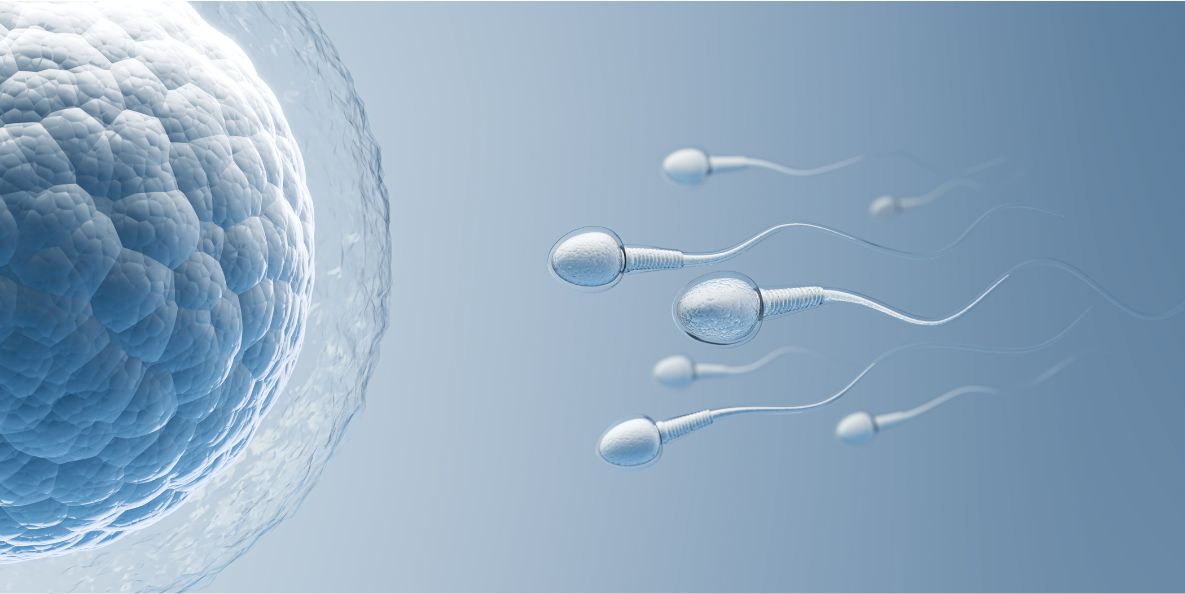Categories
Maximizing Sperm Quality in IVF - Expert Opinion
Jul 29, 2024
Sperm quality plays a very crucial role in the success of IVF treatment. Before one takes up a fertility treatment, one must know about the various factors that can affect sperm quality and quantity, the normal sperm count needed for the success of fertilization, lifestyle changes that can improve sperm quality, and many other aspects.
8 Signs of healthy sperm:
Semen Analysis is a test used to analyze men’s fertility potential. If the test report indicates low sperm count, then it is highly essential to know the best food to increase sperm count.
7 Best Foods to Increase Fertility in Male:
8 Tips to Enhance Sperm Quality:
Happy Parenthood!
8 Signs of healthy sperm:
- Sperm Count: The higher the count, the better the chances of fertilization. Many wish to know how much sperm is needed for pregnancy. According to WHO, 16 million sperm or more per millilitre is considered a healthy sperm count.
- Sperm Motility: This refers to the sperm’s swimming ability to reach the egg for fertilization. At least 42% of sperm should have good motility.
- Sperm Morphology: Morphology refers to the size and shape of the sperms and many don’t know about abnormal sperm morphology range. To be considered healthy, at least 4% of sperms should have normal morphology.
- Semen Volume: A semen volume of 1.4 ml per ejaculation is considered normal.
- Sperm DNA Fragmentation: DNA fragmentation in sperms can lead to miscarriage and hence sperm DNA integrity plays a crucial role.
- pH: The pH of the semen has to be slightly alkaline for the good performance of sperm.
- Sperm Viability: The percentage of live sperm in the ejaculate has to be high for successful fertilization.
- White Blood Cells Count: High levels of white blood cells can be detrimental to sperm health.
Semen Analysis is a test used to analyze men’s fertility potential. If the test report indicates low sperm count, then it is highly essential to know the best food to increase sperm count.
7 Best Foods to Increase Fertility in Male:
- Spinach
- Fish
- Walnuts
- Citrus fruits
- Berries
- Whole grains
- Dark Chocolate
8 Tips to Enhance Sperm Quality:
- Lifestyle Changes: Maintaining a healthy lifestyle that includes a balanced diet and regular exercise is key to sperm health. Managing stress, and avoiding smoking, excess alcohol consumption and recreational drugs is essential. Sleep duration of 7-8 hours is a must.
- Diet and Nutrition: Eat a balanced diet rich in antioxidants like fruits, vegetables, and nuts. Supplements like Vitamin D, Omega 3 fatty acids, CoQ10, Zinc, L-Carnitine, and Arginine have been shown to improve sperm quality, however, it is essential to consult your doctor/ fertility specialist before starting any supplements.
- Avoid Environmental Toxins: Avoid exposure to high temperatures as it can affect sperm production, hence avoid saunas, hot tubs, and tight underwear. Limit exposure to toxins like pesticides, heavy metals, and pollution.
- Maintain a Healthy Weight: A healthy weight is important as both obesity and underweight can affect sperm quality.
- Regular Sperm Analysis has to be done to monitor sperm quality and you can also consider doing advanced tests like DFI as per doctor’s advice.
- Addressing underlying medical conditions like varicocele, hydrocele, hypertension, and diabetes is also crucial.
- Stay Hydrated: Drink plenty of water and keep yourself hydrated.
- Consult a Fertility Specialist: Seek medical guidance from a Reproductive Endocrinologist / Fertility Specialist / Andrologist for a personalized plan to optimize your sperm quality to increase your chances of success in IVF treatment.
Happy Parenthood!











